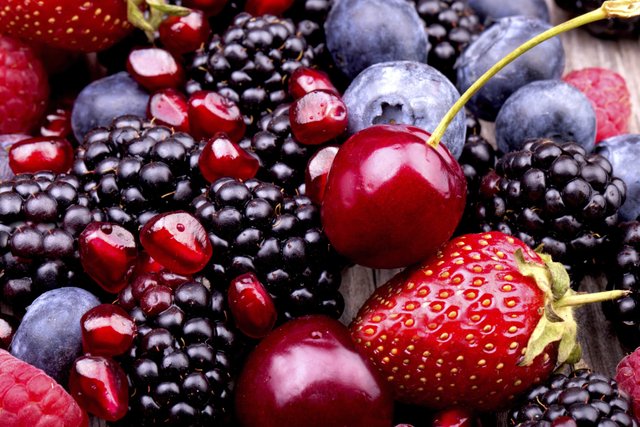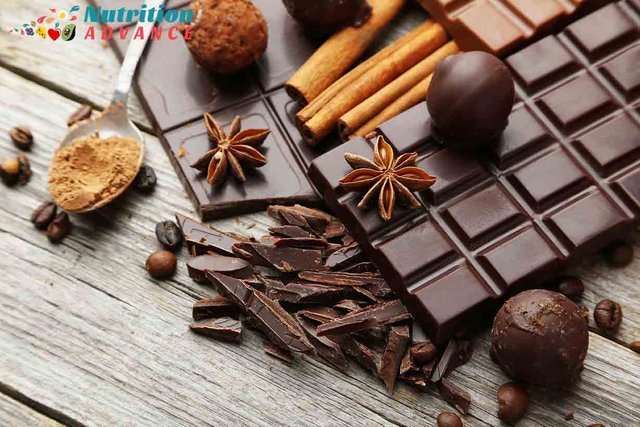Colorful Food And Health, Eat The Rainbow
Dr. Barry Sears Ph.D. biochemist and author of 'The Zone'.
Here he is discussing polyphenols, specifically flavonoids. He goes on
to discuss their ability to be gene activators if consumed at therapeutic
levels. Specifically, three types of gene classes they activate. At lesser
amounts, about one gram per day, they activate anti-oxidative genes.
The same genes that cause a transcription of enzymes, antioxidant
enzymes like superoxide dismutase and glutathione peroxidase. These
are no small time antioxidants. These can take out ten thousand free
radicals compared to lesser antioxidants that can only handle one.
At higher levels, about polyphenols turn on anti-inflammatory genes,
especially those that inhibit activation of nuclear factor kappa B, the
gene that turns on inflammation. Inflammation is a necessary thing, but
uncontrolled, it can make things worse.
At even higher levels, they activate the anti-aging gene SIRT1, and the
body begins to make the enzyme AMPKinase. This can give us a handle
on the control of our metabolism. The more ability we have to steer our
metabolism, if handled responsibly, the more we can steer it toward
health, and away from degeneration and decay.
Also discussed are various fats, as many polyphenols are fat soluble.,
and many fats are easily oxidized. The over consumption of omega-3
fatty acids is also to be considered with care, to make sure the ones
consumed are useful, not further damaging, and to address how much
is too much.
All this and more. the video, audio, and transcript are to be found here:
https://blog.bulletproof.com/barry-sears-fertility-food-flavonoids-inflammation-300/
Barry Sears - Fertility & Food, Flavonoids & Inflammation: #300



The pictures in this post look delicious. And yes, it's true that the more colorful your plate, the healthier it probably is.
I found myself without anything quick to eat for lunch today, so had to actually make something. Being a vegan and healthy eating advocate, I always try to eat as healthy as possible. Throwing together some things I already had in stock here, I made a baked potato and topped it with sea salt, freshly ground black pepper, an herbal seasoning blend left over from a restaurant, a mashed avocado, pistachio nuts, Kalamata olives, and hemp oil.
It was good, and filling, and I feel like I had a decent, healthy meal. Now, what to eat for dinner? That is the question.
Sounds yummy, unfortunately I've found that I have a strong sensitivity to nightshades, of which potato is one, and I usually save the carb heavies until after 3pm so I don't sugar crash during the day. Baked sweet potatoes are easily substituted, and an excellent source of resistant starch to feed my gut flora, plus the purple ones are rich in anthocyanin, a powerful antioxidant, in addition to the ones discussed in this post.
What do you do to raise the levels of omega-3s?
Walnuts, chia seeds, flax, hemp seeds, that kind of thing. I use a lot of hemp seeds these days, actually, and chia seed pudding is one of my new favorite things for breakfast.
This is a information with good use that could help athleets to we need to use more of this those
Eating large amounts of fruit is not healthy because they contain lots of monosaccharides(simple sugars) - fructose. What is more manufacturers use special crops that have beautiful color but little nutritional value. Organic food often does not look beautiful. "
Consuming too many antioxidants in the form of supplements could lead to an increased risk of death and disease instead of having a positive effect. "
Sugars and food quality is discussed in the interview.
I will watch it later it is over 1 hour long, thanks for posting!
Thanks for the comments.
The beauty of the internet is that there are hundreds of hours for each sub-sub-subdivision of each and every subject. Too much, in fact, for one person to sort through. The joy of Steemit is that I can discuss my understanding, and if I have anything horribly wrong, the commenters usually let me know. I have, in previous posts discussed the dangers of too much sugar, and the dangers of too little. Gluconeogenisis is an metabolically intensive process that is better avoided if possible, the liver has enough to do. At the same time, sugar is the most difficult addiction I've ever broken. It was easily ten times harder to break than tobacco, until I discovered the method for my metabolic type to give it up. Once I found that, the addiction fell away without effort.
Sorry, I do tend to go on.
Have you heard that low-salt diet can make you stupid? Read about Iodine deficiency disorders and endemic goiter and endemic cretinism
Seaweed is yummy for a way to remedy this lack of salt and iodine. It can be ground up and used in a shaker in place of the brominated salt that is to be found in the stores. For additional salt I use pickling and canning salt, which is not iodized, but is the most electrically active. Sea salt is the next choice, but can be contaminated, and last, are mined salts that have been sitting in the ground, for who knows how long, losing it's ability to do much of anything, chemically speaking.
Lack of salt can also be a risk factor in heart attack. If the sodium level falls too low, in relation to the potassium level, a heart attack can occur.